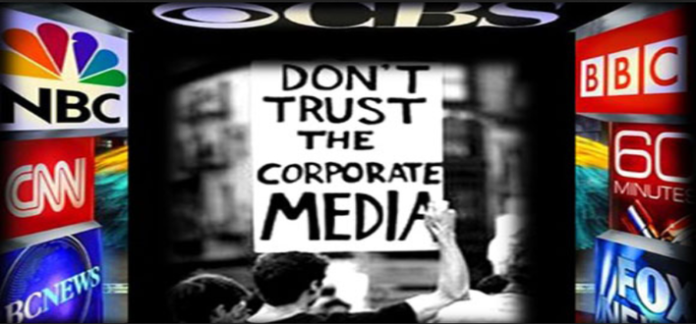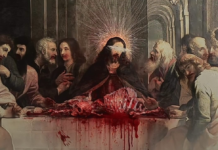JMAD’s 2020 NZ Media Ownership report is doubly significant. First, it completes a decade of research into a changing mediascape. Each annual report, available online, is a valuable resource for journalists, academics, activists and all others committed to democratic public sphere principles. In retrospect, major ownership trends can be traced—transnationalisation, concentration, conglomeration, financialisation and the emergence of local independents. Second, the 2020 report documents the national impact of COVID-19 on different media sectors—television and radio broadcasting, magazines, newspapers, Māori language and Māori interest media and social media platforms. To complement these accounts, the report also explains how COVID-19 affected global media—print news, television broadcasting, media-entertainment corporations, ICT, streaming and social media corporations. I won’t rehearse the latter findings here except to identify a bleak-joyful continuum. At the bleak end, newspapers and news businesses reliant on offline sales and advertising either disappeared or barely survived. At the joyful end, Facebook, Alphabet/Google, Zoom and Netflix did well. The happiest performer of all was Amazon. For the three months to the end of June 2020, Amazon earned US$5.2 billion in net income, double that for the same period in 2019. CEO Jeff Bezos increased the value of his personal holdings from US$113 billion to US$192 billion from mid-March to mid-October 2020. The world`s richest man is a pandemic profiteer.
The national media impact of COVID-19 outlined in this year’s report should be read in conjunction with my earlier blog (link -June 5, Crisis, Disintegration and Hope: Where to for New Zealand’s news media?). Altogether, there are some grounds for cautious optimism. Outside of private-equity controlled companies (Bauer Media, MediaWorks) and shareholder-owned media/telecom companies, independents can be strengthened. The latter category includes Allied Press, Business Desk, NBR, Newsroom, Scoop, The Spinoff and Stuff (purchased this year by Sinead Boucher). Their sustenance of news reporting, current affairs commentary and investigative journalism would be greatly assisted by returns from a tax or levy on social media corporations. The Australian government has responded to the fact that Alphabet/Goole and Facebook generate significant revenue from recycling already created news content. Similar moves in the UK and Europe have passed our government by.
Meanwhile, government proposals for an RNZ/TVNZ merger seem to be in hibernation. Properly administered, this could re-invigorate public media. Additionally, Crown-owned media organisations—TVNZ, RNZ and Māori Television—should be conceived, strategically, as an amalgam of stations, channels and digital platforms with overlapping non-commercial objectives. This is a pivotal moment. Out of the pandemic, the government has a clear mandate for media reconstruction and public media reform. If this does not eventuate then the 2020 JMAD Media Ownership report will read, historically, as the start of an era—an era of missed opportunity.






“This is a pivotal moment. Out of the pandemic, the government has a clear mandate for media reconstruction and public media reform.”
/agreed
Don’t hold your breath though Wayne. It’d require certain Ministers to be able to walk and chew gum at the same time,
Just as it would in order to make progress in other areas to do with the public good. (child poverty, housing, climate change, a meaningful Bill of Rights, Treaty, transparency et al, health).
The biggest threat to the media is the media itself.
The banality, the miserable narrative, the bleak, colourless, inoffensive yet because of that offensive writing style. Is there anyone out there in media land who hasn’t been given a lobotomy by bored aliens passing by? Rnz’s website’s unreadable unless the bran and prunes didn’t work and you have to spend half an hour in the toilet with nothing but your phone and its website.
The virus that is political ‘correctness’, the suffocating pointlessness of reporting the unnecessary is about as alluring to the reader as a used boarding pass dipped in weak tea.
Who wrote that we’re a passionless people? They were right.
Here it is. Oh, the wondrous interweb!
Gordon McLauchlan did.
https://www.nzherald.co.nz/lifestyle/book-review-the-passionless-people-revisited/M53VUNAS2LWKDV4HGAXSBEBY5Q/
” When the first edition was launched, Robert Muldoon was Prime Minister under a National Government. Now, with the same party we have John Key, who McLauchlan says is the perfectly pitched passionless person, the ultimate “smiling zombie” poster boy “with the perfectly passionless palliative face” who is ruining our country.”
You familiar with the saying ” Look into the abyss and the abyss looks back” ?
Well, look into the feeble minded AO/NZ media and the media entusiastically looks back into the feeble mind.
That report was in The NZ Herald back in 2012. The book was written in 1975.
All now buried in a shallow grave lest we the passionless people get a rise and only found if one knows where to look with a shovel in hand and who can be bothered?
We’re at a very dangerous crossroads in my opinion and I fear we’re about to loose our country to foreign interests. And no, not the Chinese. ( eye roll )
Excellent Post @ WH
CB. Agree 100%.
And the last thing govt wants is public media reform.
There’d be one or two Labour Party politicians who could do worse than acquire some “learnings” from Gordon McLauchlan “in that space, going forward”. Almost captured by the treats and trinkets associated with the flogging off of a/another public asset, he managed to see through the bullshit and check himself.
“The Big Con” is as true today as it was at the time of writing – except worse in terms of the number of people who’ve been captured.
I’m not sure how much longer the lesser classes of “passionless people” are prepared to put up with the shit they’re dealt – and keep getting dealt by people who’ve professed to represent them, but I’m pretty sure the longer they asked to wait, the more their elected representatives come to be regarded as irrelevancies.
Looking at you fa-fa-fa-Foi, S-s-s-sepoloni and one or two others.
If not 2023, then by 2026, the dispossessed that are hard enough to get out to vote anyway; the intellectual branch of the twittering left; and a newly predominant non-boomer generation looking for someone to blame for things like their lack of home ownership will sure as shit see better options than the Labour Party in its current form.
I’m not sure even if those pollies who’re planning their escape hatches (like a stint at the U.N, or a stint on a board somewhere) will escape their wrath.
I hope I’m around to watch. It’ll be fascinating darling
I can’t see why the veneer of government would do anything substantive to improve our Dimocraptcy as it serves their interests. A tough rat to swallow. RNZ is sliding to become a TVNZ patsy. RIP RNZ. It’s been whittled away to gangerous skeleton.
There is a huge difference in meaning between “loose” & LOSE. “Loose” rhymes with goose (as in silly goose). Lose is future tense of Lost. How many posters do a word check before they post? Errors of grammar/spelling diminish meaning. The use of a dictionary is never out of fashion.
I have to agree. Strangely it’s normally the right wing red necks that always use “loose”, or “looser”, to describe those on the left.
I expect countryboy just laid on the “o” for a second too long.
Comments are closed.